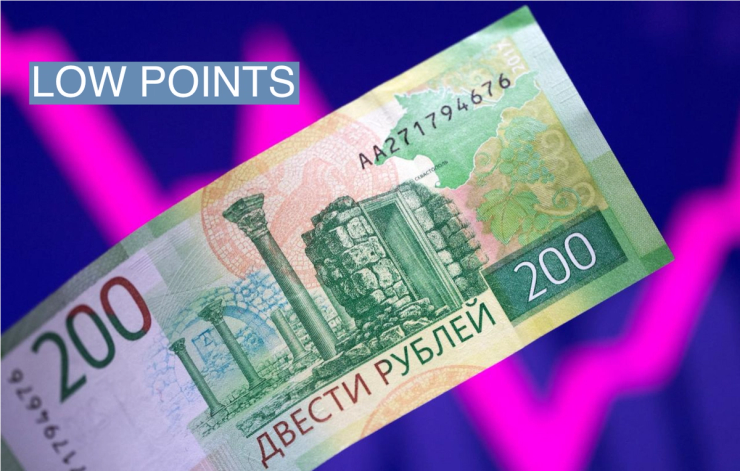The News
Russia’s rouble has slipped to its lowest point in 16 months. As of Monday, the rouble was trading at 100 per $1, a 25% decrease in value since Moscow launched its full-scale invasion of Ukraine in February 2022.
Insights
- Russia’s economy is entering a new phase. The country is attempting to meet the ever-growing costs of its war in Ukraine, while GDP growth remains stagnant, writes economist Joseph Politano. In many ways, the Russian economy has proven more resilient than expected, but civilians are bearing the brunt of the financial situation. “The costs of the war are growing faster than Russia’s economy, and without changes on the battlefield that will likely require mean squeezing of Russia’s civilian economy,” Politano notes. — Apricitas Economics
- The country is facing something of a “currency famine.” Vladimir Milov, an exiled former Russian minister who now opposes the Kremlin, said in a recent interview that very little currency is actually entering the nation. Imports into Russia have recovered, but none are coming from the West, Milov explained. The country is importing from Central Asia, Turkey, and China, he said. “You still have to pay for [imports] in some currency but no one wants roubles.” — Financial Times
- The Kremlin is placing some blame for the ruble’s free-fall on the central bank. Maxim Oreshkin, an economic adviser to Russian President Vladimir Putin, wrote in an op-ed published in state news agency TASS that the bank “has all the tools to normalise the situation in the near future.” That may lead to the central bank hiking interest rates next month in a bid to stabilize the economy. “A weak rouble complicates the economy’s structural transformation and negatively affects the population’s real incomes,” Oreshkin wrote. — Reuters
AD


